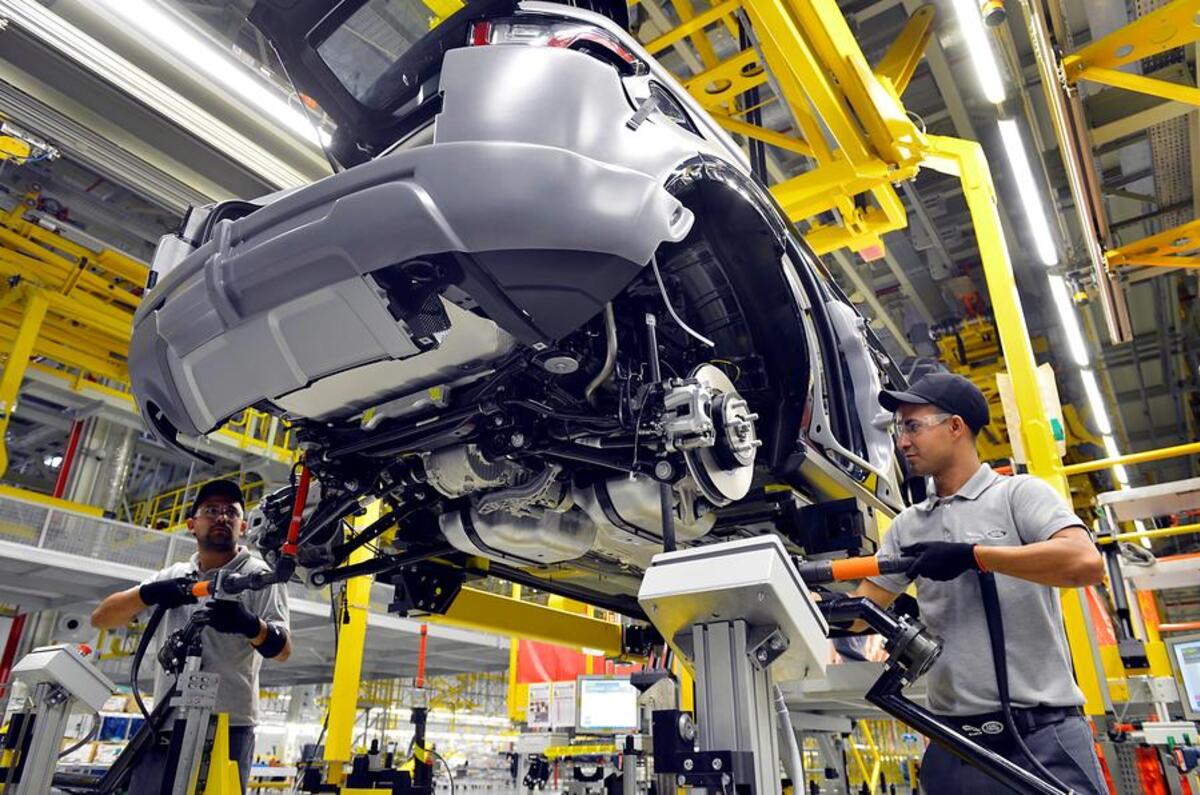More than a quarter of all cars produced in the UK last month were electrified, official figures have revealed.
In April, 16,010 electrified vehicles – either hybridised or fully electric – rolled off production lines across the country, up 2.1% on the same month a year ago. Battery-electric vehicle output was also up 38.2%.
But data from the Society of Motor Manufacturers and Traders (SMMT) has shown that, overall, UK car production fell 11.3% compared with April last year. Just 60,554 vehicles were produced, down 7752. This total was also 14.7% below the April 2019 pre-pandemic level.
The lull was blamed mainly on the ongoing global shortage of semiconductors and the impact of the war in Ukraine on supply chains.
There are now calls for new policies to protect and support manufacturing, as well as to encourage investment.
SMMT CEO Mike Hawes said: “The UK car industry is exposed to a host of issues that are undermining output and competitiveness.
“Global chip shortages and supply chain disruption are exacerbated by spiralling energy costs, additional trading costs and slowing global markets.
“The foundations of the sector are strong and the transition to zero- and ultra-low-emission vehicles continues apace but we need more policies and measures that support manufacturing and encourage investment into the UK at this most challenging of times.”
Yet the SMMT figures did show a 60.1% rise in the production of cars for the UK market, from 7975 to 12,768. The SMMT cited a substantial growth in new models attracting buyers into showrooms.
However, the UK saw a significant year-on-year decline in export figures last month, driven by the closure of Honda’s Swindon plant in July 2021.
Production output for overseas markets fell by 20.8%, from 60,331 to 47,786. This was driven by a 68% decline in shipments to the US and a 10.4% drop in those to Asia. There was a 5% uplift in shipments to the EU.








Join the debate
Add your comment
A seismic change like the transition to EVs isn't going to happen overnight: it took years for diesel to reach a point where it had a 50%+ market share. Back in 2011 EV sales amounted to 1082 units. Last year it was 190,000, more than the years 2016-2020 combined. If anyone in 2012 had said EVs were going to be outselling diesel in a decade they would have been laughed out of town. You have to embrace change, otherwise we would all still be riding about on horseback :)
'75% of UK cars produced in April were not electified in any way.'
Same fact, different spin.
The Industry, and Autocar, are busy digging their own graves.
I love how the story makes it look as if a quarter is a lot. We have massive tax incentives for EVs, smaller ones for plug ins, and many cars have simply dropped the ICE option, yet with all that going on 3/4 of all cars made here run on pure petrol or diesel. The buying public are not convinced, yet, even to buy a mild hybrid, let alone anything more electrified.
Car prices have gone up to fast, and car makers are not making the cars people want, so sales are down, and still the vast majority of those car that are sold are running on old tech, even without the massive tax payer funded incentives thrown at the alternatives.
But carry on telling us 25% is a lot. However i continue to think 75% is a lot more!
Most of the 75% will be exported. As you say, the tax treatment now forces you to look at an electrified option (as it was designed to) thereby pushing them onto British drivers at greater expense and complexity.